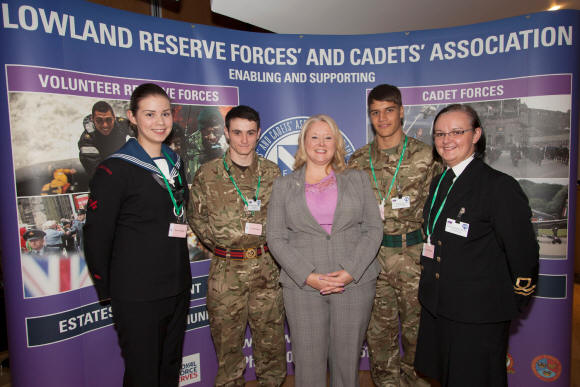|
Ann
Rowling Clinic Opens
As
regular readers will be aware, I have a particular interest in awareness
and fund-raising for the cause of Motor Neurone Disease (MND) and other
degenerative illnesses such as Multiple Sclerosis (MS). MND killed my
father in less than a year and is a horrendously distressing disease
where its victims rapidly lose all control of every physical and mental
faculty until the body just gives up.
So I
was pleased to join famous author, JK Rowling, at the official opening
of the Anne Rowling Clinic. HRH Princess Anne, who is Chancellor of the
University of Edinburgh, did the formal honours. JK Rowling is the
founder of the Clinic – her mother suffered from MS so, like me, she has
a particular desire to increase awareness and research into these
crippling diseases.
The
event took place at the Anne Rowling Regenerative Neurology Clinic
campus which is within the grounds of the Royal Infirmary of Edinburgh.
It is a charitable research facility focusing on a wide range of
neurological conditions, especially neurodegenerative diseases.
That
means that as well as MS and MND, its staff are researching conditions
like Parkinson’s disease and the range of dementias, an ever-growing
problem as we all live longer lives these days.
As the
motion I’ve put up in the Parliament says, the facility aims to improve
the lives of patients through research, translation of laboratory
findings into clinical trials and, ultimately, new therapies. The Clinic
was established in 2010 with a £10 million donation from the
Edinburgh-based author, JK Rowling, famous for her Harry Potter novels
and is named in memory of her mother, who died from MS at just 45 years
of age.
Reserve Forces and Cadets Association
My
friend and colleague, Transport and Veterans Secretary Keith Brown, MSP,
hosted a Parliamentary Reception for the Reserve Forces and Cadets
Association (RFCA) this week.
The
event was designed to raise awareness of these associations throughout
Scotland. Colonel Angus Taverner, Chairman of Highland RFCA, explained
how these groups play a vital supporting role in supporting Reservists
and engaging with local communities as citizen volunteers.
This
includes working with youth movements whose members can enjoy an
experience that is both challenging and fun, but importantly develops
their self confidence, leadership, respect for others and helps put in
place a sense of responsibility and citizenship among those aged between
13 and 18.
It was
a real pleasure to join the event and find out more about what the
tremendous contribution that these citizen volunteers across the country
actually make.

Blacklisting
The
idea of construction workers in particular (though this happens in the
oil and gas sector as well) having their names added to a ‘blacklisted’
database is reprehensible. The victims are often trade union reps
raising health and safety concerns with the employer, or the so-called
reasons can be even more obscure.
I was
glad to hear that the eight biggest blacklisting firms have now
announced a proposal for a compensation scheme for the workers who were
victims of this illegal practice. But as the Blacklist Support Group
members have said, it may be a good move but it’s not quite time to
crack open the champagne just yet (http://tinyurl.com/3apm9ge).
Still, it is welcome news and I have tabled a motion in the Parliament
saying so.
These
companies want and need to prove that they have ceased this abhorrent
practice before they will be considered for big public sector contracts,
so it is very much in their own interests to get this right. It does
your corporate reputation no good to have been involved in this sort of
abusive activity.
An
organisation called the Consulting Association has been at the centre of
this conspiracy, holding a centralised blacklist. The companies have
dissociated themselves from this outfit and expressed regret about their
involvement.
But
the victims are going to want – and deserve – more than apologies and
vague promises. |

